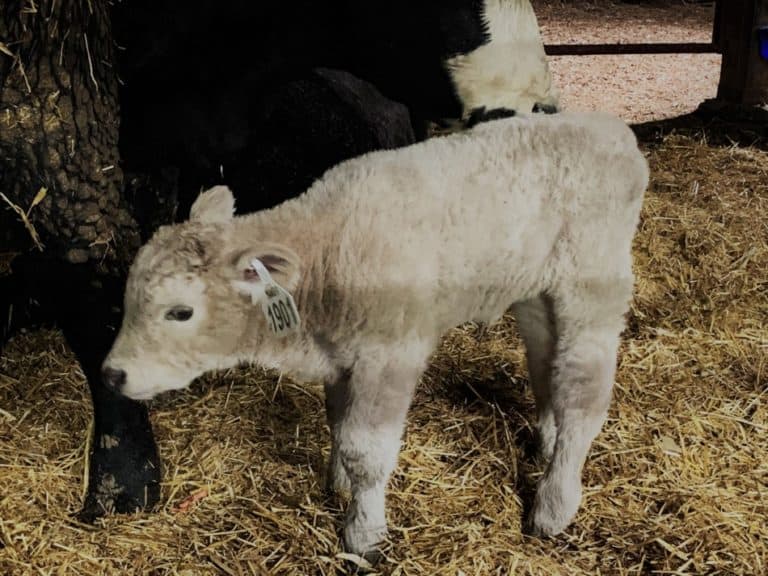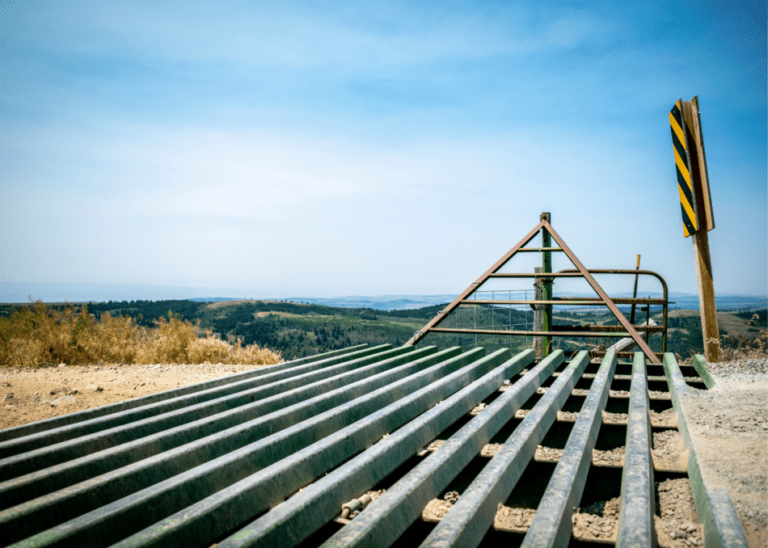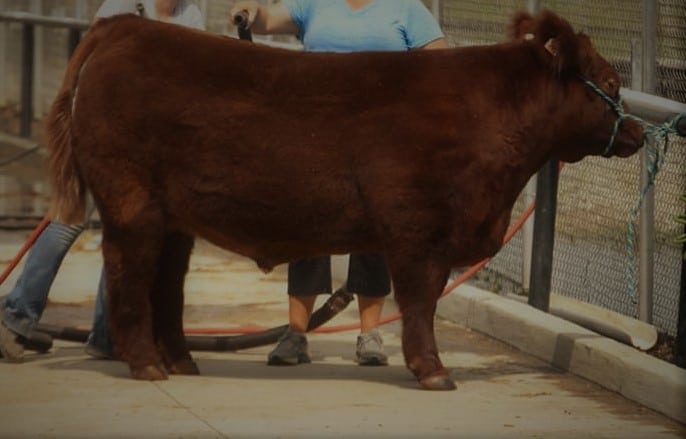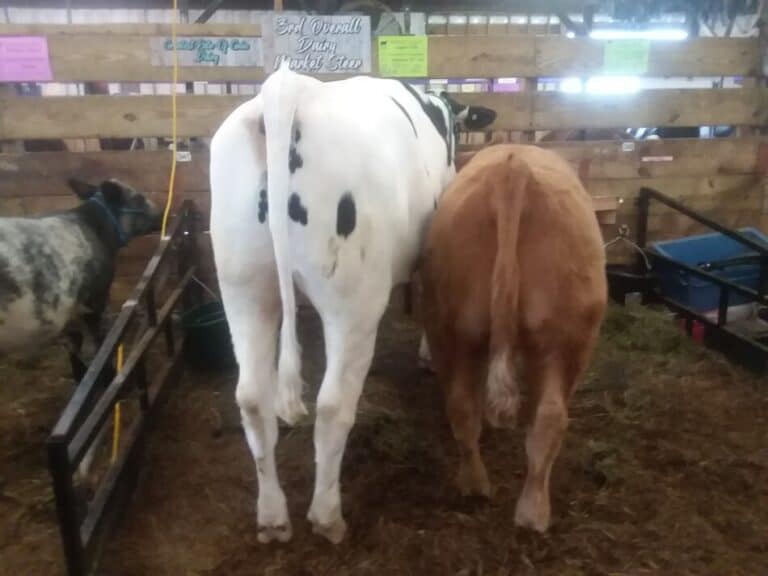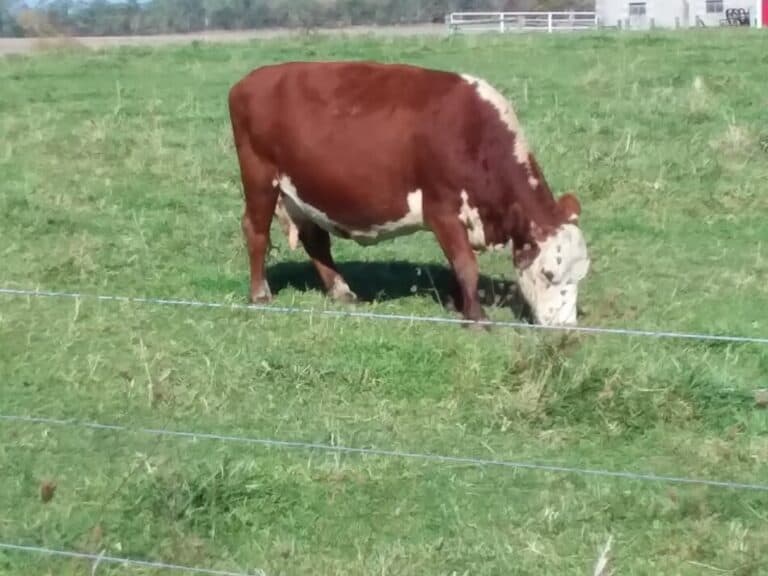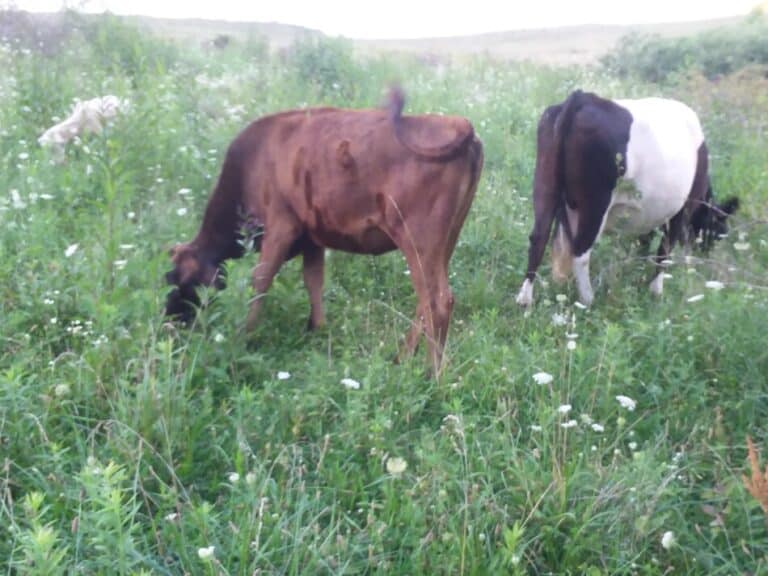Are Cattle Herbivores? An Easy Way To Tell (Applies To All Animals)
Herbivores or omnivores? When you are talking livestock sometimes this can be confusing to sort out. The good news is, (unlike people!), all cattle choose to follow the same diet plan.
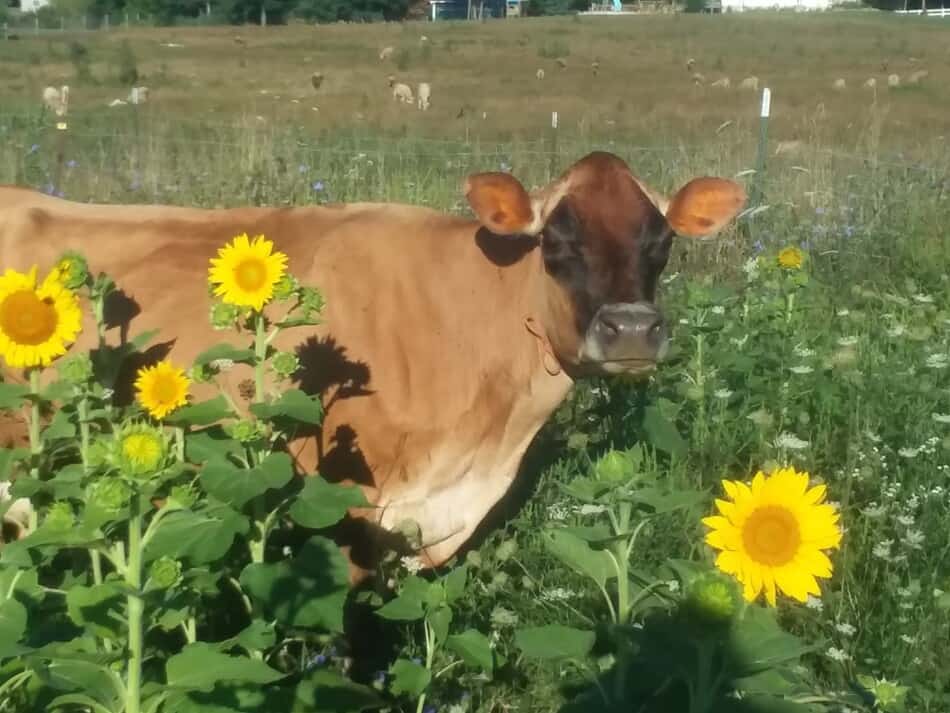
Cattle are herbivores. Herbivores are animals that are biologically designed to eat plants. Cattle, like all herbivores, have a specialized digestive system, specifically to digest forages, which includes having teeth that grind and the ability to chew their cud.
It can be confusing to figure out the natural diet for cattle if you are not familiar with them (or any other large ruminants).
For clarification: yes, cattle are herbivores.
How do we know this that cattle are herbivores? Let’s start with the characteristics of herbivores then talk about how each one applies to cattle.
All Herbivores:
- Choose to eat plants vs animal sourced food
- Have a specialized digestive system designed for digesting plants
- Have special teeth for grinding up plants
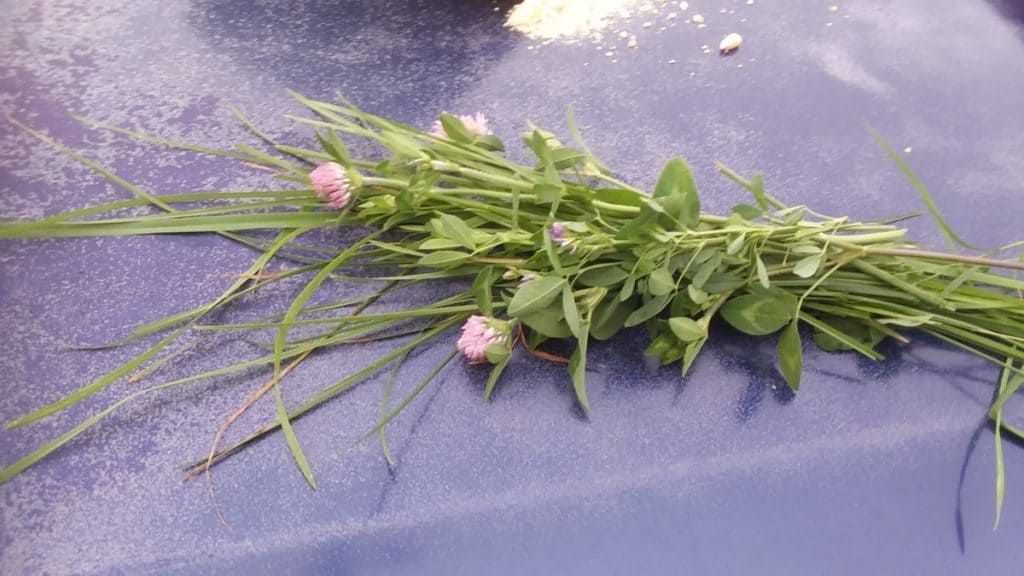
Cattle and other herbivores eat only plants
The easiest way to tell if an animal is an herbivore is to look at it’s normal diet.
What would that animal choose to eat if it was free to roam around and eat whatever it wanted?
Would it eat grass, branches, bark, fruit or grain? That makes it an herbivore.
If it would be happy with eating plants as the main source of it’s food then the animal is an herbivore.
Choosing plants over other sources of food is the main distinguishing factor to determine if an animal is an herbivore.
Once you know this, you could stop here. You’ve got your answer.
But if you want to be sure and find a small amount of conflicting information as well, please continue.
Cattle Eating Grass: Using Grass To Feed Your Herd shows you some of the things that folks who are raising beef cattle are doing to make sure their herd is happy and healthy.
Cattle and other herbivores do not naturally eat meat
This seems pretty clear cut to me, cattle do not eat meat.
But I do have to say that I can think of at least one exception where a cow as an herbivore is choosing to eat flesh.
What? Yes, I am serious, the exception I am thinking of is after a cow has her calf she will often eat the afterbirth.
The afterbirth is of animal origin and definitely not a plant so it must be mentioned.
Aside from the afterbirth, however, I do not know of anytime a cow or other cattle would choose to eat meat.
Cattle and other herbivores have a special digestive system
Herbivores have a special digestive system (they are ruminants) that allows them to break down the fiber of the plant material they are eating and turn it into energy.
We can not do that, our digestive system is not capable of breaking down tough plant fiber.
We can get nutrients from plants, of course, even tougher ones, but no where near what a ruminant can.
Being a ruminant is the main reason why herbivores like cattle can live exclusively on plants and omnivores like us need other foods to get enough energy and nutrients.
Interested in more information about cattle eating grass and being ruminants? Consider reading my article Why Does A Cow Eat Grass.
Here you will find the basics of the cattle digestive system and why and how they eat grass.
Cattle and other herbivores have special teeth
Being an herbivore means having the body to process the plants and that starts, digestion wise, with having the right teeth.
Herbivores need to be able to nip off the chosen plant and then grind it up.
The more surface area of the plant that is exposed, by grinding/chewing the easier it is for the microbial workers in the gut to start extracting nutrients,
All this chewing and grinding requires flat teeth that are specially suited for the job.
The grinding teeth in cattle are just like the molars you have in the back of your mouth.
Studying Mammals: Plant Predators shows you diagrams of ruminant tooth and mouth structure.
Cattle eat many types of plants
Some herbivore eat only one type of plant, for instance only fruit eaters or only grain eaters, but cattle are much more varied in their diet.
While the vast majority of their diet is forage plants like grasses, cattle will also eat fruit and grain when they have the opportunity.
1st or 2nd Cutting Hay shows you how to evaluate which hay you should buy for your herd and how to know you are getting your money’s worth!
Non forage type plants should be kept at snack level amounts, not main diet components, to keep the cattle healthy with a correctly functioning gut and immune system.
However, the majority of their diet must remain forages for their gut to function correctly.
Otherwise they get a “sour” stomach, like a kid (or an adult!) who ate way too much candy or cake and now feels sick.
This is where feedlot cattle have problems, ruminants are made to digest fiber filled forages, not suck down a bunch of grain.
But either way grass and grains are both plant sourced and likely to be eaten by an herbivore.
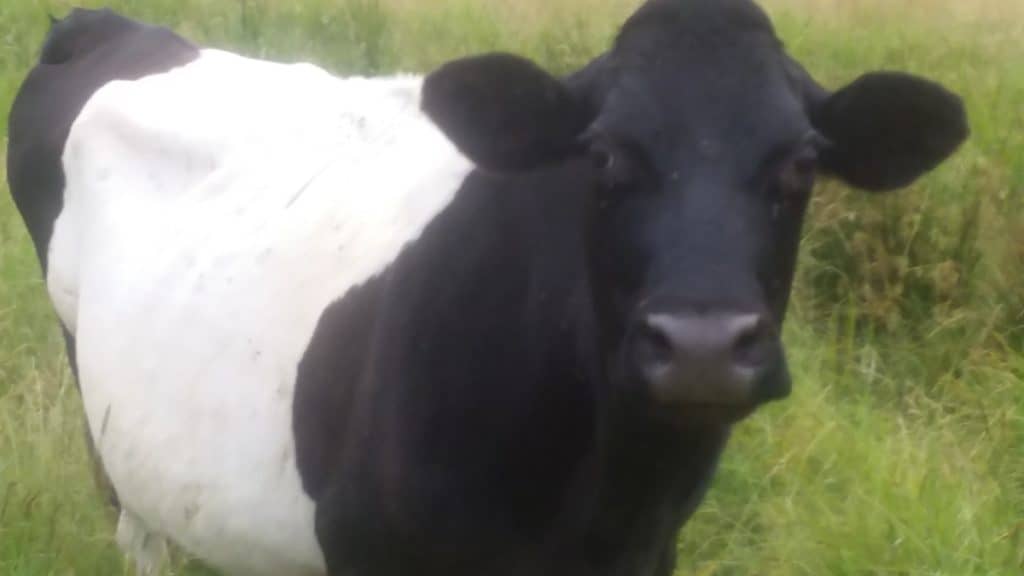
Herbivore vs. omnivore regarding cattle
Omnivore means an animal that eats both plants and animals, like people.
Generally, cattle are herbivores, but a case could be made for cattle being omnivores, unintentional omnivores but still omnivores.
I would be remiss to leave out the small percentage of animal protein that cattle would eat, of their own choosing (meaning not something ground into their feed).
The main thing here would be insects, both adults and larvae (maggots).
Granted the cattle are not eating these insects on purpose, since they are not specifically seeking them out.
But, they are none the less eating them along with the mouthfuls of forage.
I still consider cattle to be herbivores, since they are choosing to eat the grass or grain or hay and the insect that just might be there goes unnoticed by the eater.
Maybe this would be better called intentional herbivore?
If herbivore is an absolute, always and only, well then we have to change our classifications.
Still, I’m okay with herbivore, the world is perfectly designed after all, it’s the people perspective and the words that can be confusing.
Herbivore vs. carnivore regarding cattle
While cattle may occasionally eat a bug or two they do not seek out substantial quantities of meat as would a carnivore.
We can rest assured that cattle are definitely not carnivores.
However, to further muddy the waters here, carnivores would occasionally eat plants, but not as a main source of nutrition.
Think of your dog or cat eating a pretzel or a piece of bread (I can’t imagine a wild carnivore would pass up an easy meal like that either) but overall, your pet mostly eats meat not wheat.
The occasional snack, especially an opportunistic one of plant based food does not change the majority of the consumption or the classification of the animal.
It can and does add to the confusion but does not change the digestive system or general eating preferences of the animal.
Forage is the main food=herbivore
In summary the easy way to tell if an animal, cattle or anything else, is an herbivore is to ask yourself “what is the main thing this animal eats?”
If you come up with a plant as the answer, any plant-grain, fruit, grass, etc then the animal is an herbivore.
If the answer is that the animal will eat whatever is easy, plant or animal sourced, or it mostly eats other animals then the animal you are considering is not an herbivore.
